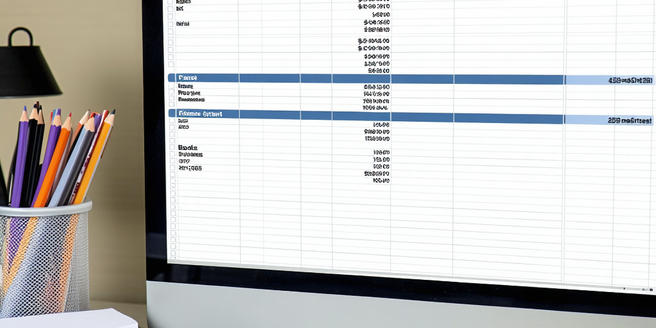
Understanding the Basics of Monthly Budgets
Creating a monthly budget is a crucial step toward achieving financial stability. It starts by taking a clear look at your income sources and mapping them against your monthly expenses. A budget helps you establish a plan for both necessary spending and saving, ensuring that you live within your means while also setting aside funds for emergencies and future goals. The primary aim is to create a balance between income and expenses, allowing you to avoid debt while meeting financial objectives. Break down your expenses into categories such as housing, food, transportation, and entertainment, and allocate a percentage of your income to each. Adjust these allocations as needed and review your budget regularly to ensure it aligns with changes in your financial situation, making adjustments as necessary.
Essential Steps to Creating a Monthly Budget
Building an effective monthly budget involves several key steps. First, gather all sources of income, from salaries to any side gigs. Next, list all fixed expenses like rent, utilities, and insurance. Follow this by noting variable expenses such as groceries, dining out, and entertainment. With a complete list of income and expenses, compare them to ensure your income covers your expenses. Prioritize savings by setting a target amount to save each month, treating it like a fixed expense. It’s crucial to track your spending to identify areas where costs can be cut. Tools like financial apps or simple spreadsheets can aid in monitoring your budget. Finally, reassess and adjust your budget periodically to reflect any life changes, ensuring that your financial plan remains effective and sustainable.
How Credit Cards Impact Your Budgeting
Credit cards can significantly influence your budgeting strategy, both positively and negatively. On the positive side, they offer convenience and can help build a credit history, which is important for future financial opportunities such as loans or mortgages. They also provide rewards such as cashback and travel points. However, without careful management, credit cards can lead to increased debt due to high-interest rates. It’s essential to factor credit card payments into your monthly budget to ensure you can pay off balances in full each month to avoid interest charges. By setting a spending limit for your credit cards within your budget, you can enjoy their benefits while minimizing the risk of debt accumulation. Regularly review credit card statements to maintain control and adjust spending habits if necessary.
Strategies for Managing Credit Card Expenses
Effectively managing credit card expenses is essential to maintaining a healthy financial profile. Begin by understanding the terms and conditions of your credit cards, including interest rates and fees. Create a spending plan that includes credit card usage, ensuring it aligns with your overall budget. Limit card usage to what you can afford to pay off each month, preventing debt from accumulating. Consider utilizing budgeting tools to track credit card spending and set alerts to avoid missing due dates. Furthermore, prioritize paying off high-interest cards first if carrying balances is unavoidable. Regularly review your credit report to identify and correct any inaccuracies. By adopting these strategies, you can use your credit cards responsibly, maximizing their benefits without detrimentally impacting your financial health or budget.
Balancing Budget Goals with Credit Card Use
Balancing budget goals with credit card use involves a mindful approach to spending. Begin by aligning your credit card use with your financial goals, such as saving for a vacation or paying off student loans. Allocate a specific budget for credit card spending, ensuring it falls within your overall budget limits. Opt for cards that offer rewards aligning with your spending habits, like travel rewards if you frequently travel. Regular monitoring of credit card statements is crucial to prevent overspending and maintain alignment with your financial goals. Additionally, always pay more than the minimum payment to reduce debt faster. Establish an emergency fund to cover unexpected expenses rather than relying on credit, keeping you on track with your long-term financial objectives while responsibly managing credit card use.
